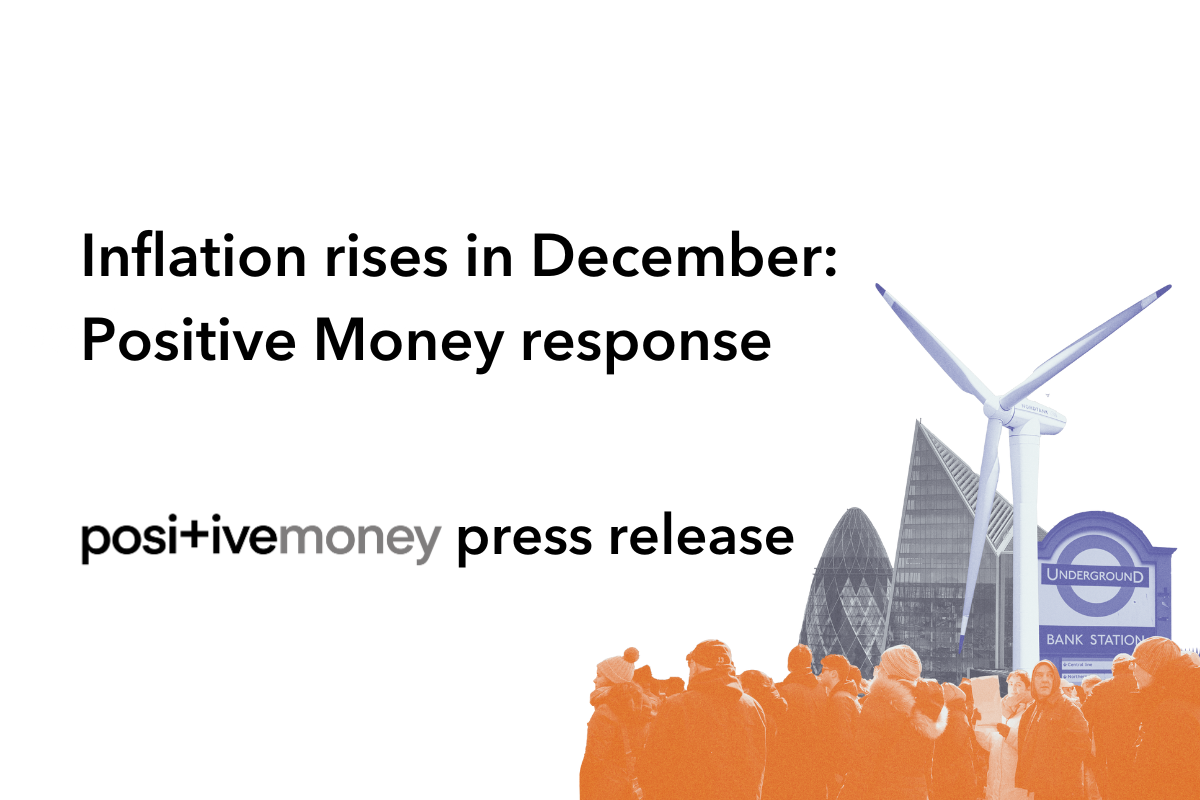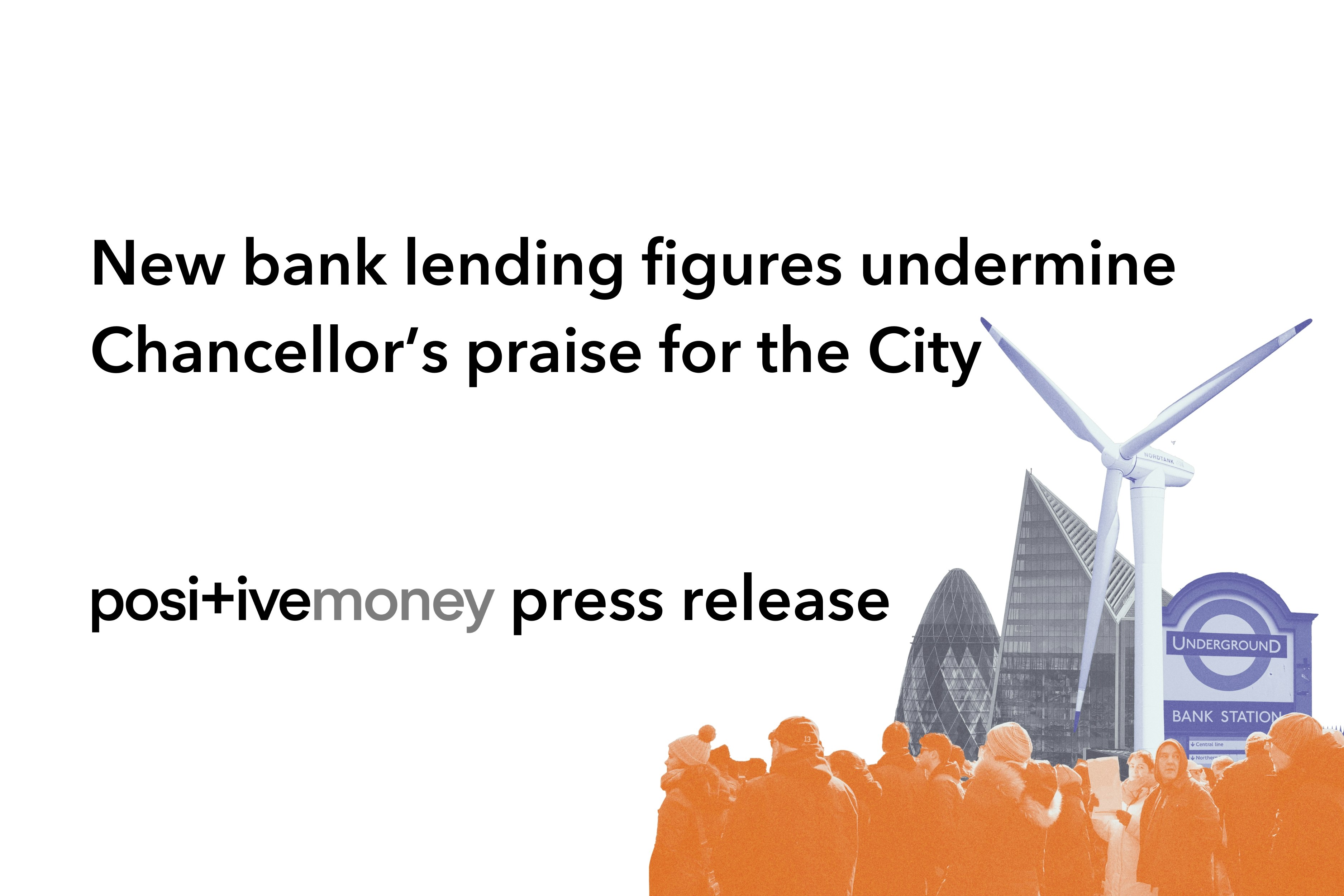
Monetary policy and inequalityUK
21 January 2026
Lending to the real economy has halved in real terms since 2010
London, 4th December 2024 - Bank lending to productive industries has been negative for the past three years, falling by £8.5 billion in 2023 alone, according to new analysis from research and campaign group Positive Money.
Positive Money finds that UK banks increasingly favour unproductive lending, either to financial institutions or for the purchase of existing property, while neglecting the real economy. Net lending to the real economy - as opposed to the financial economy of stocks, shares and assets - decreased by £5 billion in 2021, by £5.6 billion in 2022, and by £8.5 billion in 2023. On a sectoral basis, manufacturing, construction, transport and retail have all seen negative annual changes in net lending in recent years.
As of October 2024, the stock of loans held by non-financial corporations stands at just 16.6% of total lending whilst 23.9% of total lending goes to financial corporations. Non-financial corporations only hold about half of the outstanding credit they held in 2010 when adjusted for inflation.
The majority of credit created by banks has gone towards bidding up the price of pre-existing property, with mortgages increasing from 39% of total lending in the beginning of 2009 to 54% by October 2024.
The analysis comes shortly after the government published a call for evidence on the Financial Sector Growth and Competitiveness Strategy, a plan for the financial services sector forming part of the government’s new Industrial Strategy. It follows Rachel Reeves’ recent praise for the sector as the “crown jewel in our economy”.
Alec Haglund, Senior Researcher at Positive Money and author of the research, said:
“With the vast majority of the UK’s money being created by commercial banks in the form of loans, banks can effectively decide which sectors prosper, and which are neglected.
“By overwhelmingly lending to other financial firms and for the purchase of existing assets such as property, the growth model of the financial sector has not changed since the financial crisis, but continues to rely on asset-price inflation rather than growth in the real economy.
“Our findings contradict the Chancellor’s claim in her Mansion House speech that post-crisis banking regulation “has gone too far”, and is clear evidence of why effective regulation, credit guidance and public investment banks like the National Wealth Fund are required to steer private finance away from speculative activities and towards those that will drive a just transition to a green economy”.
Notes:
Access the full research briefing here: https://www.datocms-assets.com/132494/1733321772-updated-bank-lending-research-briefing-dec-2024.pdf
The call for evidence for the Financial Services Growth and Competitiveness Strategy can be found here: https://www.gov.uk/government/calls-for-evidence/financial-services-growth-and-competitiveness-strategy
Rachel Reeves’ Mansion House speech can be read in full here: https://www.gov.uk/government/speeches/mansion-house-2024-speech
Positive Money used the Bank of England’s Bankstats tables to conduct this analysis, the latest of which was released 29 November 2024: https://www.bankofengland.co.uk/statistics/tables
